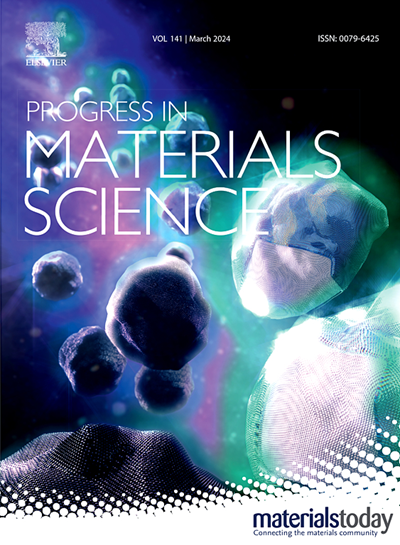Performance failure mechanisms and mitigation strategies of high-temperature proton exchange membrane fuel cells
IF 33.6
1区 材料科学
Q1 MATERIALS SCIENCE, MULTIDISCIPLINARY
引用次数: 0
Abstract
As one type of promising electrochemical technologies, high temperature proton exchange membrane fuel cells (HT-PEMFCs) have been widely recognized as the next-generation fuel cell technology for clean energy conversion due to their superiorities of fast electrochemical kinetics, simplified water management, good tolerance to feeding gas contaminants, low emission and high efficiency of energy conversion. However, performance failure during long-term operation still largely hinders their practical application. Accordingly, the explorations of advanced materials and structures, degradation mechanisms and mitigation strategies are attracting intensive attentions for promoting the progress of this technology. In addressing the timely update on the emerging progress regrading long-term durability of HT-PEMFCs, a comprehensive review summarizing the most recent developments of performance failure mechanisms and mitigation strategies for critical components of HT-PEMFCs is presented here. In this paper, the fundamentals involving basic reactions, main components, and development history are first summarized for fundamental understanding; then, the failure analysis and the corresponding mitigation strategies for critical components involving proton exchange membrane, catalytic layer, gas diffusion layer, bipolar plate, and thermal/water management systems are mainly emphasized. Furthermore, the technical challenges are analyzed and the further research directions are also proposed for overcoming the challenges toward practical application of HT-PEMFCs.
高温质子交换膜燃料电池的性能故障机制和缓解策略
作为一种前景广阔的电化学技术,高温质子交换膜燃料电池(HT-PEMFCs)以其快速的电化学动力学、简化的水管理、对进气污染物的良好耐受性、低排放和高效率的能量转换等优点,被广泛认为是下一代清洁能源转换燃料电池技术。然而,在长期运行过程中出现的性能故障仍在很大程度上阻碍了其实际应用。因此,对先进材料和结构、降解机理和缓解策略的探索正引起人们的广泛关注,以促进该技术的进步。为了及时更新 HT-PEMFCs 长期耐久性方面的新进展,本文对 HT-PEMFCs 关键部件的性能失效机制和缓解策略的最新发展进行了全面综述。本文首先概述了基本反应、主要组件和发展历史等基本原理,以便从根本上理解;然后,主要强调了质子交换膜、催化层、气体扩散层、双极板和热/水管理系统等关键组件的失效分析和相应的缓解策略。此外,还分析了 HT-PEMFCs 所面临的技术挑战,并提出了进一步的研究方向,以克服这些挑战,实现 HT-PEMFCs 的实际应用。
本文章由计算机程序翻译,如有差异,请以英文原文为准。
求助全文
约1分钟内获得全文
求助全文
来源期刊

Progress in Materials Science
工程技术-材料科学:综合
CiteScore
59.60
自引率
0.80%
发文量
101
审稿时长
11.4 months
期刊介绍:
Progress in Materials Science is a journal that publishes authoritative and critical reviews of recent advances in the science of materials. The focus of the journal is on the fundamental aspects of materials science, particularly those concerning microstructure and nanostructure and their relationship to properties. Emphasis is also placed on the thermodynamics, kinetics, mechanisms, and modeling of processes within materials, as well as the understanding of material properties in engineering and other applications.
The journal welcomes reviews from authors who are active leaders in the field of materials science and have a strong scientific track record. Materials of interest include metallic, ceramic, polymeric, biological, medical, and composite materials in all forms.
Manuscripts submitted to Progress in Materials Science are generally longer than those found in other research journals. While the focus is on invited reviews, interested authors may submit a proposal for consideration. Non-invited manuscripts are required to be preceded by the submission of a proposal. Authors publishing in Progress in Materials Science have the option to publish their research via subscription or open access. Open access publication requires the author or research funder to meet a publication fee (APC).
Abstracting and indexing services for Progress in Materials Science include Current Contents, Science Citation Index Expanded, Materials Science Citation Index, Chemical Abstracts, Engineering Index, INSPEC, and Scopus.
 求助内容:
求助内容: 应助结果提醒方式:
应助结果提醒方式:


